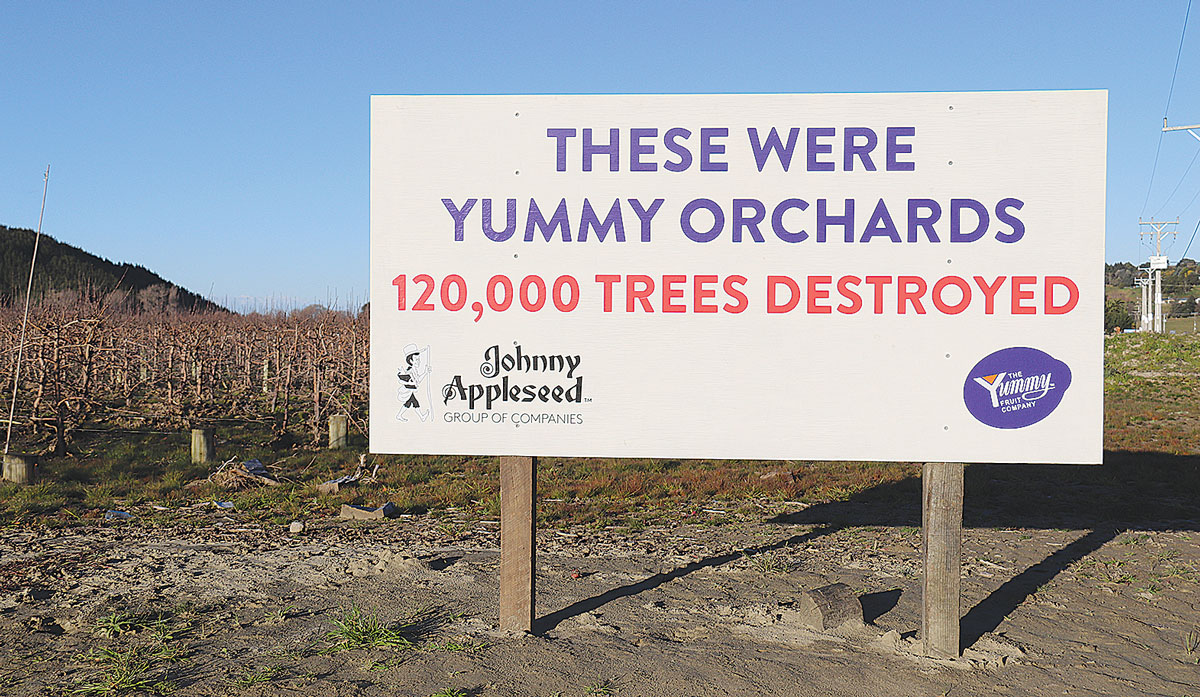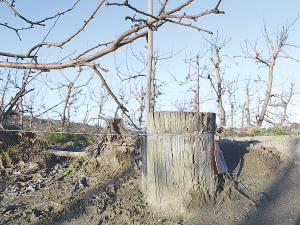A leading Hawke's Bay orchardist says the recovery in the region is taking place in a ponderous way.
Paul Paynter, of the Yummy Fruit company told Hort News he believes it will take up to 15 years for the region to recover fully from Cyclone Gabrielle. He says the way things are going, the apple industry in the region could shrink by about a third.
In Esk Valley, Paynter's company has lost 120,000 apple trees - all buried under two metres of silt. The valley is still littered with cars caught up in fences and tangled vines, with houses wrecked in a way one might expect in a war zone.
"It's pretty hard confronting that every day. I've been to Esk Valley 8 or 10 times and every time I go I have to pull over at the side of the road and take a few deep breaths," he told Hort News.
"I know what I am going to see but it's difficult to cope with the tragedy. It has a psychological impact."
Paynter says in the Esk Valley there are people who open their curtains every morning and see a disaster zone.
"You know they may be living in their garage or fixing up their half destroyed house and it's pretty hard on them mentally," he adds. "It's hard on relationships, very hard on finances, so it's a very tough environment and people's heads are dropping."
Paynter says it's taken a long time for the Government to form a plan, which includes interest-free loans from Kanoa, a government agency. He says this is fine, but in essence it's just more debt and most people already have a debt problem.
He says industry margins have been squeezed over the last couple of years. Everything has gone up: wages, shipping, energy, insurance. Meanwhile, prices have gone down and the big question is whether people can service the debt.
 |
|---|
|
The sign says it all!
|
"The final thing is the demographics of the industry. Your average fruit grower looks a bit like your average farmer: north of 60 years old," he explains. "They are thinking that it may take them at least 20 years to get back to normal and are asking themselves, 'is it worth it?' Instead, they may opt to pull out the trees and plant an annual crop for Watties and spend time with the grandkids."
On the positive side, Paynter says there may be an option for orchardists to pull out damaged trees and replace them with newer varieties of apples, which could get a higher premium in overseas markets. They may also get to upgrade their growing systems.
However, he warns that if people do rebuild their orchards, they need to get their assumptions about markets right. He points out, for example, the present problems with the Chinese market.
Paynter says with the sun shining people can hopefully turn their mindset around and see the opportunity for a new crop.
But he believes this won't be easy given that people have gone through a long, miserable winter trudging around in sludge.
"It's been pretty confronting for them," he says.



















